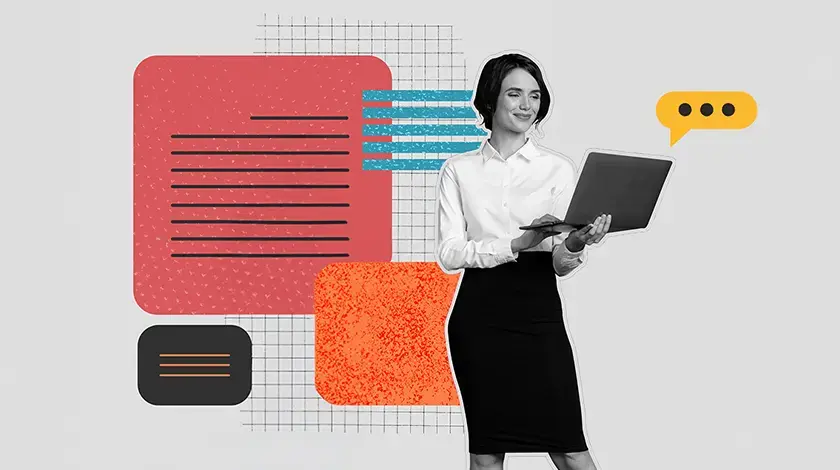The AI Adoption Curve in M&A: Why the Advisor Remains Irreplaceable
AI is rewriting the process of M&A, but the art of closing a deal still belongs to people, not code.
Tags

Heiko Engel
Senior Account Executive, SS&C Intralinks
Artificial intelligence (AI) has emerged as one of the most transformative technological forces across industries in the last two years, and mergers and acquisitions (M&A) is no exception. As generative AI (GenAI) reshapes how we gather, process and interpret information, a key question has come to the forefront: Where exactly are we on the AI adoption curve in M&A — and what does it mean for the role of the human advisor?
As part of SS&C Intralinks and DEALCIRCLE’s webinar series, I recently hosted a panel with three leading M&A experts — Dr. Michael Drill, CEO of Lincoln International; Julian Ostertag, managing partner and co-founder of DrakeStar; and Kai Hesselmann, co-founder and managing partner at DEALCIRCLE — to explore exactly that. Our conversation revealed how AI is reshaping dealmaking and why human expertise remains indispensable.
Here are the top three takeaways from the webinar.
1. Adoption: From public LLMs to proprietary knowledge
The consensus among top firms like Lincoln International is that the M&A industry has moved beyond early exploration and is now entering the productive adoption phase. But a key distinction in this evolution lies in how firms are approaching this technology: public large language models (LLMs) are often viewed as insufficient — or too risky — for confidential deal work.
The confidentiality barrier
As Dr. Drill noted, querying public LMMs with deal-sensitive data could expose that information externally. To mitigate this risk, many firms are now investing in proprietary, closed-loop AI systems that train on decades of internal intelligence — meeting notes, Salesforce entries and information memoranda. These private models generate data-backed insights that public systems cannot, surfacing data-driven predictions about buyer behavior and deal likelihood.
The efficiency dividend: “The 70 percent”
Across organizations, AI’s most immediate value lies in automating what Julian Ostertag calls “the 70 percent of M&A work,” or the repetitive, data-heavy tasks that consume valuable hours, such as:
- Due diligence: AI can now comb through virtual data rooms (VDRs) with unprecedented speed and accuracy, accelerating review and reducing manual effort.
- Longlist creation: Kai Hesselmann of DEALCIRCLE believes that data-driven platforms are democratizing access to quality buyers, allowing small-cap advisors to compete with global players.
2. The trust gap: Why human judgment is essential
If AI can handle 70 percent of the work, the real value lies in the remaining 30 percent. That’s where trust, discretion and human insight come in.
Beyond public data
Julian Ostertag emphasized that the most crucial deal information is rarely public. True advantage comes from proprietary intelligence gathered through relationships and real-world context. "What was the precise, unadjusted LTM EBITDA? The public numbers are often completely wrong," he noted as an example. AI can generate a comprehensive longlist of potential buyers, but it’s the advisor, drawing on their deep sector expertise, who will determine which ones are actually ready to proceed, and under what conditions.
The liability question
Accountability still lies with the advisor. As the panel agreed, AI may assist in decision-making, but humans remain legally and ethically accountable for any errors or AI “hallucinations.” As a result, the following new processes are essential:
- Human verification: Every AI-generated output must be reviewed, fact-checked and validated by an experienced advisor.
- Transparent sourcing: AI tools must provide clear references so that advisors can verify each data point’s origin.
3. The future: A shift in skillset and focus
Panelists agreed AI isn’t replacing advisors — it’s redefining their role and allowing them to work at a higher level, freeing them from the manual, burdensome tasks that once consumed valuable hours of their pressure-filled day.
Flatter structures and new skills
Dr. Drill predicts a move away from the traditional hierarchical pyramid of investment banking toward flatter, more agile organizations. The required skillset for young professionals is also shifting:
- From analysis to empathy: Emotional intelligence will become the most-valued skill. M&A is a life-changing event for sellers. Advisors who can manage the seller’s anxieties, negotiate soft factors and build trust will remain indispensable.
- From calculation to context: Advisors will spend less time crunching numbers and more time mastering “information orchestration” — knowing where insights live and how to ask the right questions.
Looking ahead
The practice of M&A — the strategy, trust-building, risk management and emotional intelligence required to align competing interests and close a deal — remains profoundly human. Success in the coming years hinges on a hybrid approach — one that aggressively implements secure AI platforms purpose-built for dealmaking to maximize efficiency while relentlessly investing in the uniquely human skills that help drive complex transactions to the finish line.
AI is revolutionizing how deals are sourced, analyzed and executed, but it cannot replicate the instincts, empathy and trust that define successful M&A. Firms that balance between technological precision with human insight are positioning themselves to lead the next era in dealmaking.